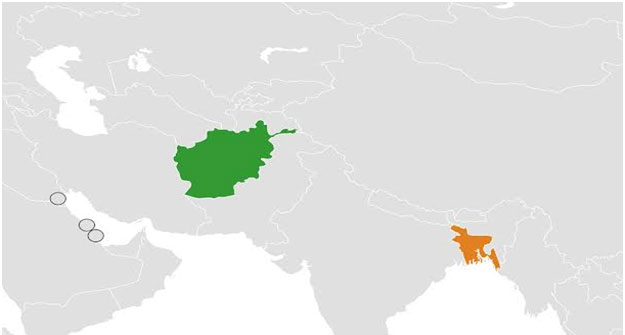By; Hafsa Afzal
Our immune system do a remarkable job at fighting off foreign cells to protect us against illness naturally a global health pandemic strikes, we are bound to feel more concerned than usual about
staying strong and healthy. As, until a vaccine is available, “our immune systems will need to adapt unassisted to COVID-19” , says the World Economic Forum. Proper nutrition and hydration are vital. People who eat a well-balanced diet tend to be healthier with stronger
immune system and lower risk of chronic illness. So you should eat a variety of fresh and unprocessed foods every day to get the vitamins, minerals, dietary fiber, protein and antioxidants your body needs. When it comes to fighting viruses like COVID-19, one method to have a strong immune system. Eating a balanced diet is important for boosting our immune systems over time.
1. Immune Boosting Dairy Products:
Dairy farmers are always looking for ways to strengthen and maintain the health and immunity of their dairy cows. Now, emerging research suggests dairy foods themselves, as part of a healthy eating pattern, may have the potential to boost the immunity of people who consume them.
Amid the COVID-19 pandemic and with flu season just around the corner, all eyes are focused on ways to stay healthy, making this area of research especially relevant. While no single food or dietary supplement can keep illness at bay, dairy foods are nutrient-dense and provide essential nutrients — including vitamins A and D, zinc, and protein — that support immune function and
play specific roles in boosting the immune system. Vitamin A supports the tissues of the gastrointestinal tract and respiratory systems. Vitamin D plays a role in the gastrointestinal tract and protects against lung infections. Zinc helps with immune system function and the maintenance of skin integrity. Protein aids in healing and recovery.
2: Immune Boosting Fruits and Vegetables:
Eating a low-fat, plant-based diet may help give the immune system a boost. The immune system relies on white blood cells that produce antibodies to combat bacteria, viruses, and other invaders. Vegetarians have been shown to have more effective white blood cells when compared to no vegetarians, due to a high intake of vitamins and low intake of fat. Eating a low-fat diet may also be protective. Studies have shown that limiting dietary fat helps strengthen immune defenses. Research also shows that oil may impair white blood cell function and that high-fat diets may alter the gut microbiota that aid in immunity.Maintaining a healthy weight can also benefit the immune system. Obesity has been linked to increased risk for influenza and other infections such as pneumonia.Plant-based diets areeffective for weight loss, because they are rich in fiber, which helps fill you up, without adding extra calories. Fiber can also lower BMI, which is linked to improved immunity. A plant-based
diet has also been shown to reduce inflammatory biomarkers.
Vitamins, Minerals, and Antioxidants:
Studies have shown that fruits and vegetables provide nutrients—like beta-carotene, vitamin C, and vitamin E—that can boost immune function. Because many vegetables, fruits, and other plant-based foods are also rich in antioxidants, they help reduce oxidative stress.
Beta-Carotene: Beta-carotene is a powerful antioxidant that can reduce inflammation and boost
immune function by increasing disease-fighting cells in the body. Excellent sources include sweet potatoes, carrots, and green leafy vegetables.
Vitamins C and E: Vitamins C and E are antioxidants that help to destroy free radicals and support the body’s natural immune response. Sources of vitamin C include red peppers, oranges,strawberries, broccoli, mangoes, lemons, and other fruits and vegetables.
Vitamin E sources include nuts, seeds, spinach, and broccoli.
Vitamin D: Research shows vitamin D supplementation may reduce the risk for viral infections, including respiratory tract infections, by reducing production of proinflammatory compounds in
the body. Increased vitamin D in the blood has been linked to prevention of other chronic diseases including tuberculosis, hepatitis, and cardiovascular disease. Food sources of vitamin D include fortified cereals and plant-based milks and supplements.
Zinc: Zinc is a mineral that can help boost white blood cells, which defend against invaders. Sources include nuts, pumpkin seeds, sesame seeds, beans, and lentils.
3: Immune Boosting Nuts:
Nuts such as almonds, cashew nuts peanuts etc. are a good source of minerals and vitamins like copper vitamins B6 zinc iron and vitamins E these have assistant properties and also improve the immune system.
4: Immune Boosting Fruits and Vegetables Juices:
Peach, carrot juice, pineapple juice, strawberry juice, orange juice, cucumber with lemon juice, apricot juice, lemon juice, pear juice, fresh apple juice, black grape juice, and fresh cabbage juice.
5: Immune Boosting Green Foods:
Juice from organic Cauliflower, organic nuts green extract organic wheat plant, organic barley leaf extract, organic marine green algae, spirulina, marine vegetables green broccoli, or organic
kale and scabkelps.
(Name: Hafsa Afzal is a student of B.S Hons. Department; Food Science and Technology. Government College Women University Faisalabad)











